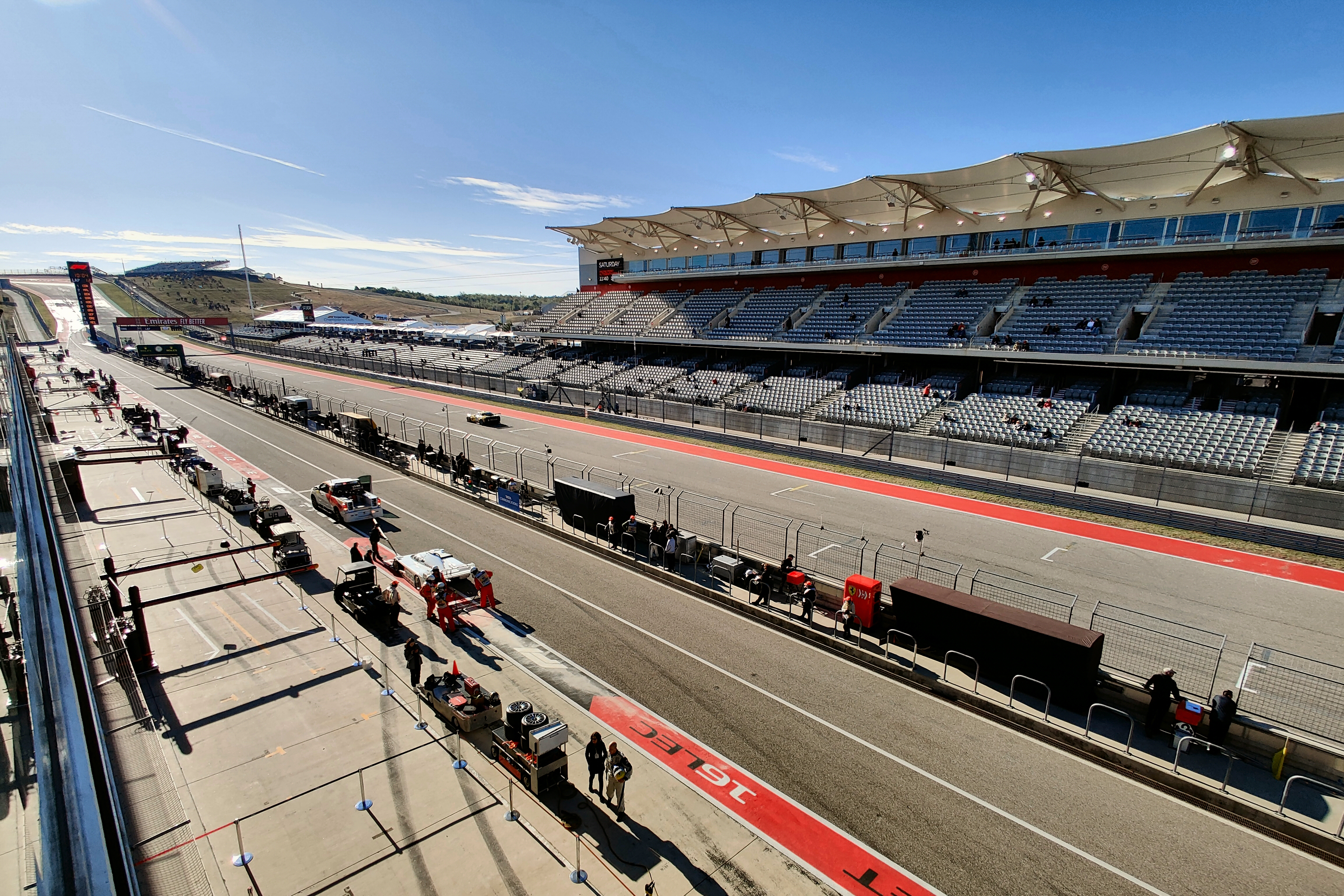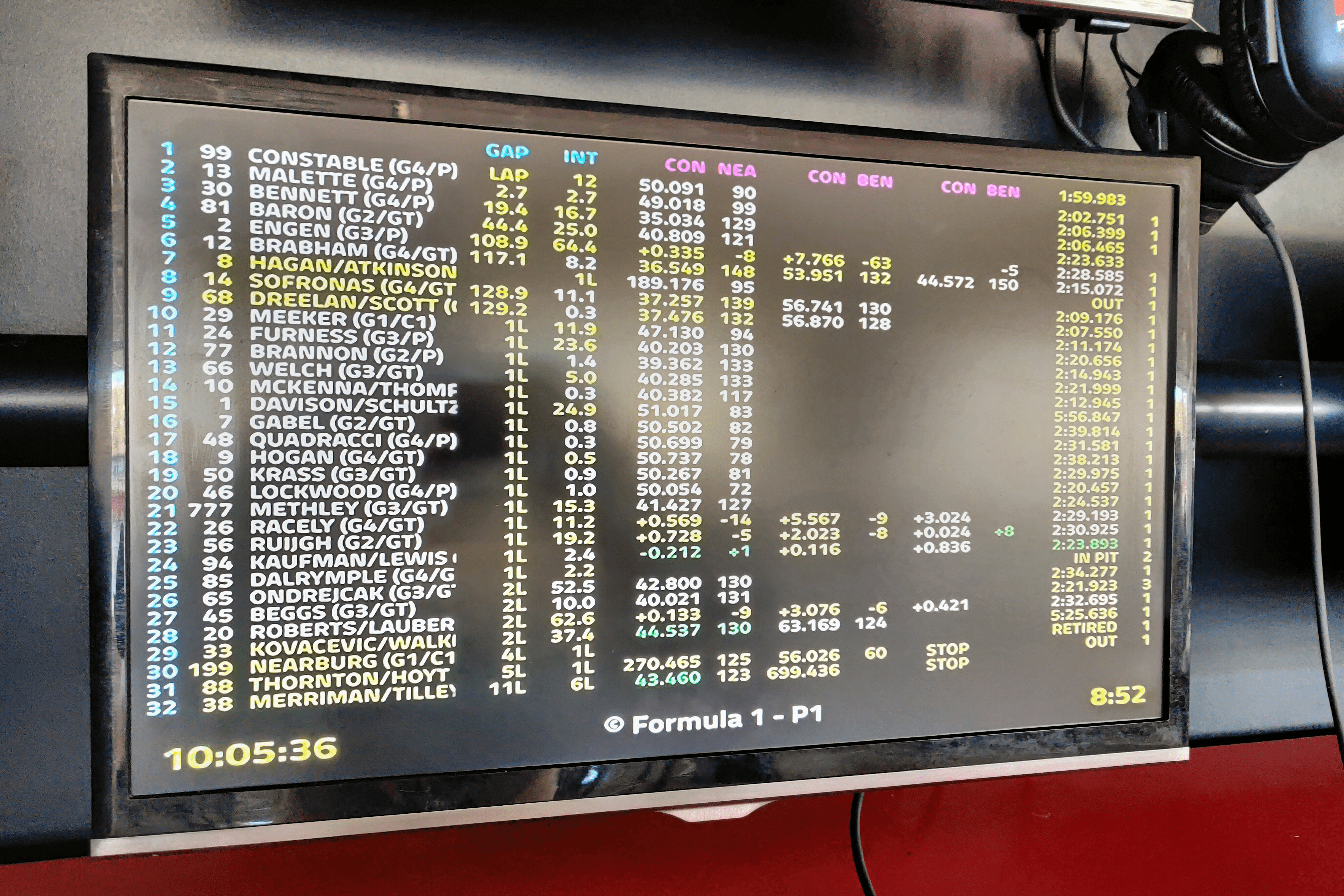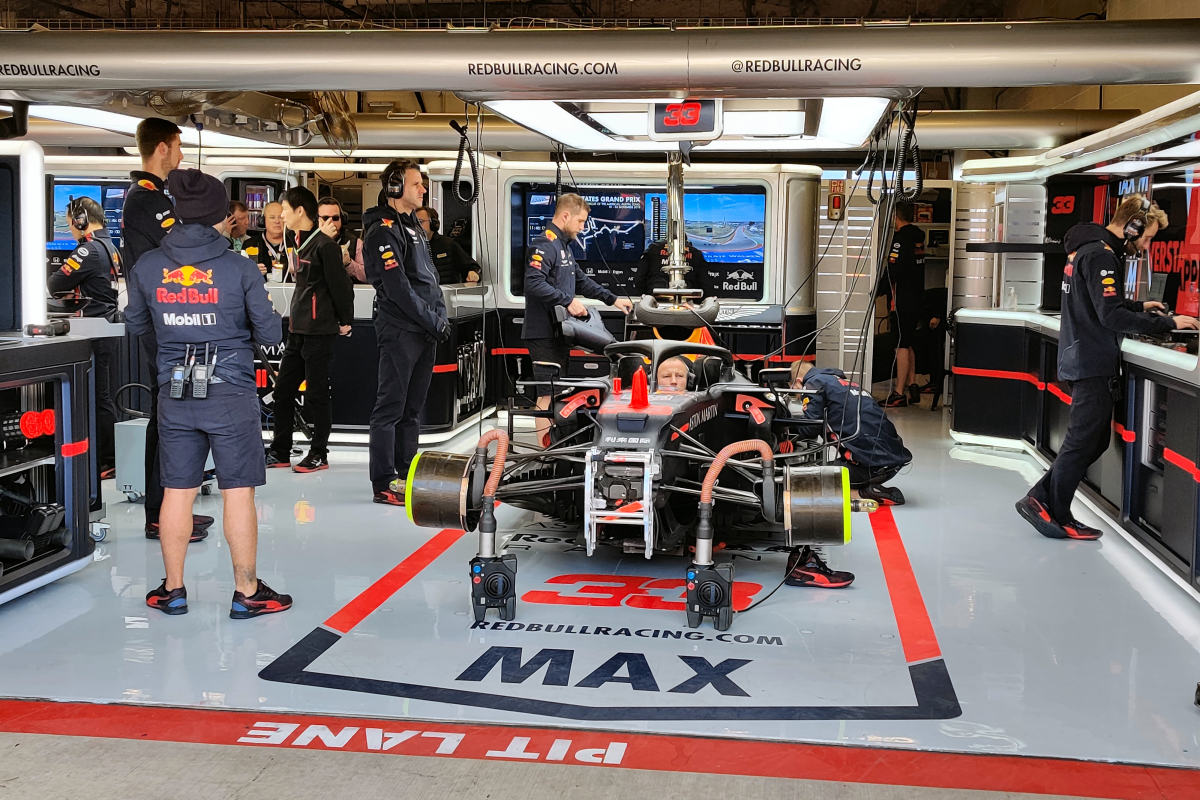Circuit of the Americas hosts the only Formula One race to be held in the United States, and I recently traveled to Austin, Texas, to spend a weekend embedded with the Aston Martin Red Bull Racing team as they prepared and executed their game plan for the open-wheel event. After sitting down with drivers Max Verstappen and Alex Albon, and then spending time with the crew in the garage during practice and the actual race itself, I came away with a strong impression of what it takes to compete at one of the highest levels of motorsports.
In fact, many of the lessons learned that weekend can be applied to anyone who’s looking to improve their own driving performance. Whether you’re killing cones at autocross, turning in laps on a road course or just competing door-to-door, F1 teams offer a great example of how to elevate your skills behind the wheel.
Proper Maintenance Is Key
The Aston Martin Red Bull Racing garage bay was a humming hive of activity each and every hour of the day, and a huge portion of that was the team’s engineers and mechanics constantly swarming over the car. Neither of the two race vehicles leave their pit stalls before absolutely every component has been double, triple and quadruple-verified as being correctly installed, torqued down and ready to race.

In the same way, proper maintenance of your personal track vehicle is key to squeezing out the best possible performance. It’s tempting to skip checking things like tire pressures or lug-nut torque because it was “fine when you parked,” but not knowing exactly what condition your car is in before you hit the track is a recipe for disappointing surprises — and potential disaster. You can’t necessarily win a race with preparation, but you can certainly lose one without it.
Focus
One of the things that struck me most about how Verstappen and Albon comported themselves at the track is just how regimented their lives truly are. So much hinges on their performance during qualifying and the race itself that they can’t afford to have any distractions from the task at hand, which means they allot only small, specific windows of time to non-driving activities, which are rigorously enforced.
Staying in the moment is a key to high-performance driving not just while you’re on the track — where a momentary lapse in attention can have serious consequences — but also in the time leading up to the green flag being waved. Putting yourself in the right headspace to clear your mind and think only about the driving you are about to do is crucial. Hence following the maintenance advice above: it’s one less thing to worry about once you get behind the wheel.
Teamwork Counts
Verstappen and Albon are world-class drivers, but without the Aston Martin Red Bull Racing team to support their every move, they would achieve nothing in the sport of F1. Teamwork is everything when you’re competing at the highest level, and being able to trust their teammates to take care of everything else allows those two pilots to direct the majority of their focus to their driving when the time comes.

Most of us who head out to autocross or a local track day don’t have nearly the same level of resources as a professional race team. That being said, your team is whoever touches your car before you leave the pits — whether that’s the garage that installed your tires or tuned your suspension, a friend who checked your wheel torque or a family member who came with you, remembered to bring lunch and provided you with company throughout the day. Having a virtual “team” that understands what you are trying to achieve (fast time of the day, a new personal best or simply improving your driving skills) and can support you on the way there is going to play a large part in your long-term success as you develop your on-track capabilities.
Learn From Mistakes
Perhaps more than any other sport, Formula One teams have learned how to weaponize data collection. Every single aspect of car and driver performance are being transmitted to the pits in real-time, where they are recorded and analyzed either in the moment or after a session in order to find areas where things can be improved. I discovered that the atmosphere inside an F1 garage during the race itself is one of tense silence while the telemetry streams in and all eyes are on the video displays showing the data shaped by the events on the track.

While many of us won’t have access to anything more exotic than a lap timer that can break down our speed across different sections of a race course, we still have something in common with F1 drivers: the ability to recognize our mistakes and then learn from them. Knowing where and why you were slow on a track, or what inputs made the car feel unstable, or what type of driving caused the tires to overheat prematurely, are all necessary when learning how to avoid the same errors on the next lap.
At the same time, being able to put an instructor or a more experienced driver in the right seat and then listen carefully to their feedback at the end of a run can be incredible valuable for the same reasons. Being cognizant and objective about your performance, and understanding why you made certain decisions on the track and what their outcomes were, is a major tool for growth.
This article was featured in the InsideHook newsletter. Sign up now.


















